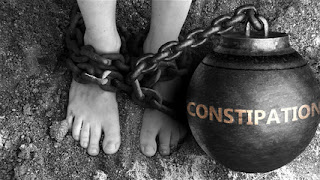Think Twice About Calcium Supplements
I have never been a fan of taking calcium supplements in to reduce my risk of osteopenia or osteoporosis. It just doesn’t seem right to mega dose a mineral in the hopes of balancing the body.
Most of us are not deficient in calcium and you are more likely to suffer from abundant calcium deposits or calcifications such as kidney stones and gall stones.
When you look around the world you will see that cultures that don’t drink dairy or take calcium supplements have the lowest rates of osteoporosis. North America is where you will find the most concentrated population of people with osteoporosis and yet we take more calcium supplements than the rest of the planet combined.
According to a recent study reported by Green Med Info: “Calcium supplements... increase the risk of cardiovascular events, especially myocardial infarction (heart attack)... A reassessment of the role of calcium supplements in osteoporosis management is warranted.”
A recent analysis has found that there is a 30 percent increased risk for heart attack for those taking 500mg or more of elemental calcium. Many women are taking 1200mg or more.
 Robert Thompson, M.D. wrote a book on the subject called “The Calcium Lie,” which explains that bone is comprised of at least one dozen minerals, and that the focus on calcium supplementation is likely to worsen bone density and actually increase your risk for osteoporosis. This over-consumption and imbalance of calcium creates other mineral deficiencies that increase your risk of heart disease, kidney stones, gallstones, osteoarthritis, hypothyroidism, obesity and type 2 diabetes.
Robert Thompson, M.D. wrote a book on the subject called “The Calcium Lie,” which explains that bone is comprised of at least one dozen minerals, and that the focus on calcium supplementation is likely to worsen bone density and actually increase your risk for osteoporosis. This over-consumption and imbalance of calcium creates other mineral deficiencies that increase your risk of heart disease, kidney stones, gallstones, osteoarthritis, hypothyroidism, obesity and type 2 diabetes.
Our bones are not brittle and breaking for lack of a calcium pill. A body that consumes mostly acidic foods and a lack of leafy green vegetables is a perfect set up for the process of demineralization. Soda is a major villain when it comes to fragile bones. People taking steroids and drugs such as omeprazole are fast-tracking osteoporosis, as these drugs promote demineralization of the bone.
Taking biphosphonate drugs is not the answer when it comes to stronger bones. Drugs like Fosamax, Boniva and Actonel have not proven themselves to lower your fracture risk but do increase your risk for jawbone death, liver and kidney damage — they do not appear to have any health promoting benefit to the body.
Most believe that arterial plaque is built up of cholesterol but in reality, 90 percent of these fatty plaques are calcified. Calcium deposits affect the elasticity of your arteries by causing them to harden.
In postmenopausal women, hormone balance is necessary to prevent calcium from slowly exiting your bones and deposit into your arteries. This is most likely the risk for heart disease jumps dramatically at the onset of menopause.
 The best way to achieve healthy bones is by consuming a diet rich in fresh, raw whole foods that maximize naturals so that your body has the raw materials to protect you. Calcium needs to be balanced with other minerals as well as Vitamin D and K. Vitamin K rich foods include kale, spinach, broccoli, Brussels sprouts and asparagus. Hand harvested, unprocessed sea salt contains 84 trace minerals that your body knows what to do with. Supplements that promote an alkaline environment such as mineral drops will help to prevent osteoporosis far better than calcium alone.
The best way to achieve healthy bones is by consuming a diet rich in fresh, raw whole foods that maximize naturals so that your body has the raw materials to protect you. Calcium needs to be balanced with other minerals as well as Vitamin D and K. Vitamin K rich foods include kale, spinach, broccoli, Brussels sprouts and asparagus. Hand harvested, unprocessed sea salt contains 84 trace minerals that your body knows what to do with. Supplements that promote an alkaline environment such as mineral drops will help to prevent osteoporosis far better than calcium alone.
Your body is more likely to use calcium correctly if it is from plant-derived calcium such as leafy green vegetables, carob, and wheatgrass, chia seed, flax seed, almonds and sesame seed. Raw milk from cows that eat grass contains a superior form of calcium when it comes to absorption but once milk has been homogenized and pasteurized, absorption is negatively affected. Almond milk actually contains more calcium.
Other ways to prevent bone loss include limiting sugar, optimize your Vitamin D3 level, and eat foods rich in Vitamin K2. Weight bearing exercises, omega-3 fish oils, and a diet abundant in raw fruits and vegetables are some of the best ways to maximize bone health. Supplements that promote an alkaline environment such as mineral drops will help to prevent osteoporosis far better than calcium alone.
Most of us are not deficient in calcium and you are more likely to suffer from abundant calcium deposits or calcifications such as kidney stones and gall stones.
When you look around the world you will see that cultures that don’t drink dairy or take calcium supplements have the lowest rates of osteoporosis. North America is where you will find the most concentrated population of people with osteoporosis and yet we take more calcium supplements than the rest of the planet combined.
According to a recent study reported by Green Med Info: “Calcium supplements... increase the risk of cardiovascular events, especially myocardial infarction (heart attack)... A reassessment of the role of calcium supplements in osteoporosis management is warranted.”
A recent analysis has found that there is a 30 percent increased risk for heart attack for those taking 500mg or more of elemental calcium. Many women are taking 1200mg or more.
 Robert Thompson, M.D. wrote a book on the subject called “The Calcium Lie,” which explains that bone is comprised of at least one dozen minerals, and that the focus on calcium supplementation is likely to worsen bone density and actually increase your risk for osteoporosis. This over-consumption and imbalance of calcium creates other mineral deficiencies that increase your risk of heart disease, kidney stones, gallstones, osteoarthritis, hypothyroidism, obesity and type 2 diabetes.
Robert Thompson, M.D. wrote a book on the subject called “The Calcium Lie,” which explains that bone is comprised of at least one dozen minerals, and that the focus on calcium supplementation is likely to worsen bone density and actually increase your risk for osteoporosis. This over-consumption and imbalance of calcium creates other mineral deficiencies that increase your risk of heart disease, kidney stones, gallstones, osteoarthritis, hypothyroidism, obesity and type 2 diabetes.Our bones are not brittle and breaking for lack of a calcium pill. A body that consumes mostly acidic foods and a lack of leafy green vegetables is a perfect set up for the process of demineralization. Soda is a major villain when it comes to fragile bones. People taking steroids and drugs such as omeprazole are fast-tracking osteoporosis, as these drugs promote demineralization of the bone.
Taking biphosphonate drugs is not the answer when it comes to stronger bones. Drugs like Fosamax, Boniva and Actonel have not proven themselves to lower your fracture risk but do increase your risk for jawbone death, liver and kidney damage — they do not appear to have any health promoting benefit to the body.
Most believe that arterial plaque is built up of cholesterol but in reality, 90 percent of these fatty plaques are calcified. Calcium deposits affect the elasticity of your arteries by causing them to harden.
In postmenopausal women, hormone balance is necessary to prevent calcium from slowly exiting your bones and deposit into your arteries. This is most likely the risk for heart disease jumps dramatically at the onset of menopause.
 The best way to achieve healthy bones is by consuming a diet rich in fresh, raw whole foods that maximize naturals so that your body has the raw materials to protect you. Calcium needs to be balanced with other minerals as well as Vitamin D and K. Vitamin K rich foods include kale, spinach, broccoli, Brussels sprouts and asparagus. Hand harvested, unprocessed sea salt contains 84 trace minerals that your body knows what to do with. Supplements that promote an alkaline environment such as mineral drops will help to prevent osteoporosis far better than calcium alone.
The best way to achieve healthy bones is by consuming a diet rich in fresh, raw whole foods that maximize naturals so that your body has the raw materials to protect you. Calcium needs to be balanced with other minerals as well as Vitamin D and K. Vitamin K rich foods include kale, spinach, broccoli, Brussels sprouts and asparagus. Hand harvested, unprocessed sea salt contains 84 trace minerals that your body knows what to do with. Supplements that promote an alkaline environment such as mineral drops will help to prevent osteoporosis far better than calcium alone.Your body is more likely to use calcium correctly if it is from plant-derived calcium such as leafy green vegetables, carob, and wheatgrass, chia seed, flax seed, almonds and sesame seed. Raw milk from cows that eat grass contains a superior form of calcium when it comes to absorption but once milk has been homogenized and pasteurized, absorption is negatively affected. Almond milk actually contains more calcium.
Other ways to prevent bone loss include limiting sugar, optimize your Vitamin D3 level, and eat foods rich in Vitamin K2. Weight bearing exercises, omega-3 fish oils, and a diet abundant in raw fruits and vegetables are some of the best ways to maximize bone health. Supplements that promote an alkaline environment such as mineral drops will help to prevent osteoporosis far better than calcium alone.



Comments
Post a Comment